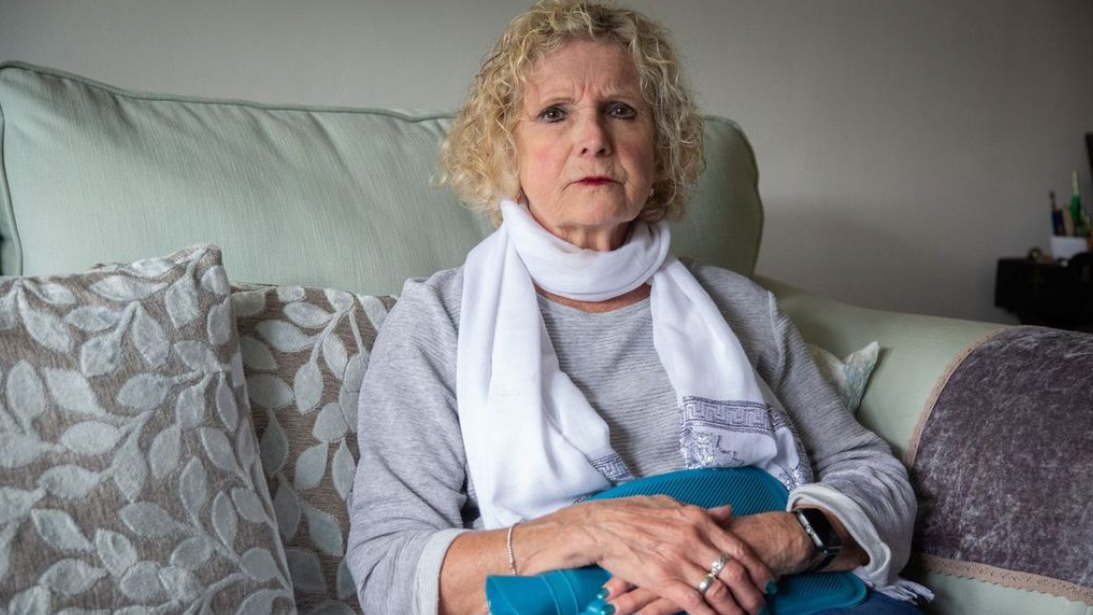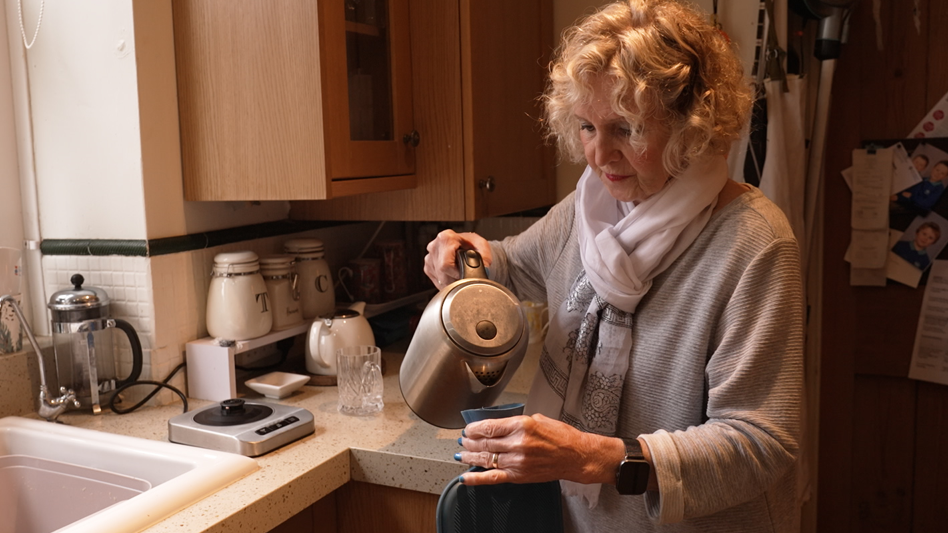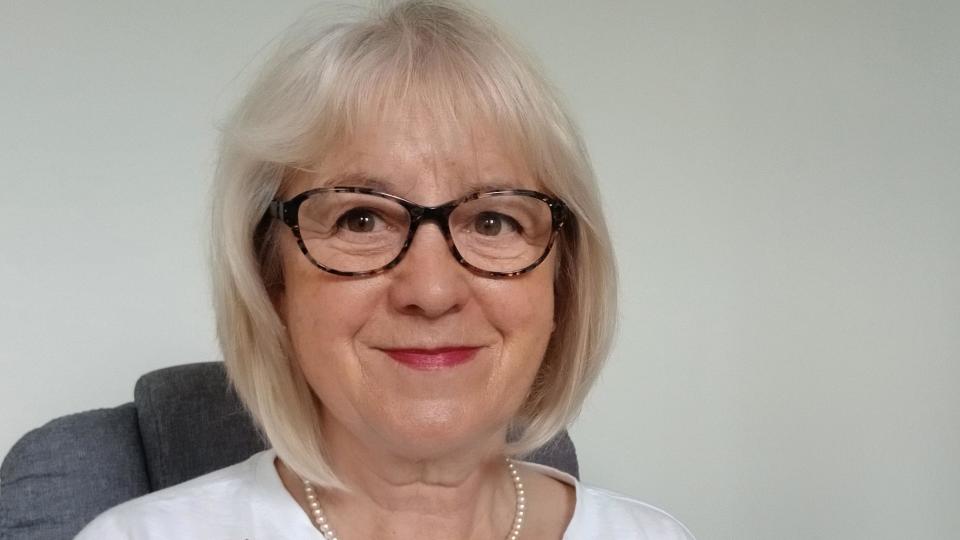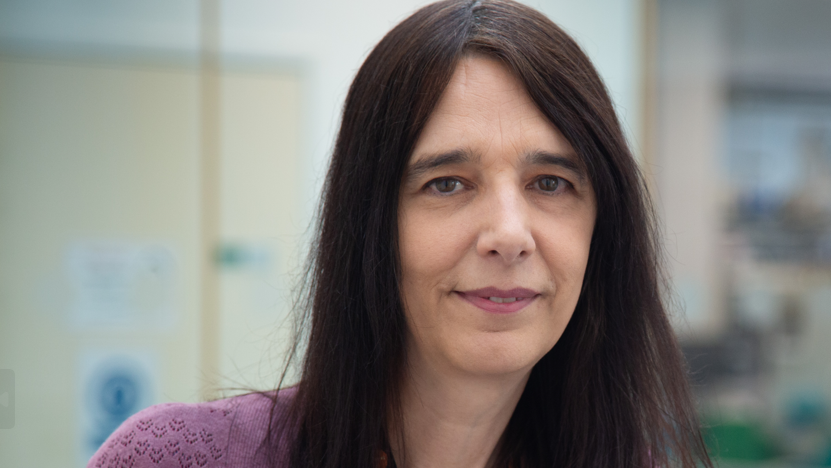Woman's stress as UTI becomes resistant to antibiotics

A woman who needs antibiotics almost every other month has said her infection's growing resistance to them has caused "stress and suffering".
Sian Jones, from Vale of Glamorgan, has spoken about her experience to avoid others feeling isolated, because she feels it is a topic often "considered taboo".
Experts predict drug resistance infections will kill more people than cancer by 2050 unless action is taken.
A microbiology expert at Public Health Wales (PHW) said he thought the issue would make Covid look minor.

Sian, 71, has suffered with reoccurring urinary tract infections (UTIs) since she was 18.
"I feel ill with the infections, they’re painful, uncomfortable and it makes my mood feel low."
She said it affected day-to-day life, sometimes having to cancel plans and stay at home.
"When I was employed I had regular sick leave as some days I was too weak to attend. When I have a UTI, I know I’m hopeless, I can’t do anything."
She said she tried to keep healthy, and self-medicate with cranberry juice and vitamins but often needing medication is unavoidable.
Sian said needing to return to the doctors for additional prescriptions because antibiotics have not worked had happened "too many times".
"It’s so stressful, you have to go through the process of getting through to the GP, and then have more antibiotics to take until it goes. It really is a bind for us women who suffer this way."
She has taken part in medical research "as she wants to make a difference and to avoid others suffering".
She feels it is important to speak up to avoid the topic being a taboo or feeling like a stigma.
Last week the Welsh government published a National Action Plan for antimicrobial resistance been 2024 and 2029.
It is part of a 20-year vision with other UK governments to control antimicrobial resistance by 2040.
It said a future where antibiotics and antimicrobials are ineffective would mean routine surgery would become "too dangerous to perform and chemotherapy would become high risk".
It said a "One Health approach" was needed. This involves recognising there is a multifactor way to tackle this via people, animals, and the wider environment.
Dr Robin Howe, the national clinical lead for microbiology at PHW, told BBC Wales Live he agreed with England's former chief medical officer Dame Sally Davies' warning that superbugs would make Covid look "minor".
"If you think that the WHO [World Health Organization] figures say that there have been seven million people around the world who have died from Covid, then what we’re predicting is 10 million people a year will be dying from antimicrobial resistance within our lifetimes."

Aileen Bryson is a pharmacist, and a member of the patient support team with the charity Antibiotic Research UK.
She said the medical research charity started 10 years ago, but patient support had evolved over the past four years as it had become an increasing problem for people.
“Antibiotic resistance can be hugely impacting on people’s lives, people often talk about their life shrinking and diminishing and how it affects their whole family."
She said by the time people reach out for support they can often be desperate.
"We’ve had people say to us life is just not worth living like this. We hear that kind of statement quite often because they are quite despairing."
She said people having someone they can talk too and understand their situation was "crucial".
"We don’t have a magic answer but we can talk through the issues, and help them have a better understanding of it."

Prof Angharad Davies, from Health and Care Research Wales, said antimicrobial resistance was a huge public health issue.
"By 2050 scientists think that more people will die of AMR infections than will die of cancer, so it really is a major issue."
"It’s a very real live active issue and that’s why we’re moving away from the term silent pandemic because that makes it sound as if it isn’t having an impact, it absolutely is."
She is part of a team working to prevent the impact of AMR, including trials to determine how to reduce antibiotics being prescribed unnecessarily.
"Most sore throats are caused by viral infections not bacteria but it can be difficult to spot."
Rapid throat swab tests were rolled out in pharmacies as part of a trial to try and determine the cause.
"The study showed a significant decrease in antimicrobial prescriptions issued, and now that has been rolled out across Wales."
She said more research in this area was vital and that it needed a multifactor approach.
"We can’t only approach this in one sector, the causes are complex. It not only exists in medicine but also plants and animals which all contribute."
For more on this story, watch Wales Live on BBC iPlayer.
If you are affected by any of the issues in this article you can find details of organisations that can help via BBC Action Line.

